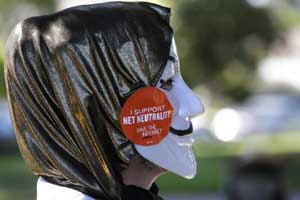Two, unlike the US where net neutrality is being introduced, India has virtually no fixed line network—so India’s teledensity is going to be purely mobile-based and is going to be privately funded at that. Around 40% of Indians, for instance, do not have voice networks right now, and just about 12% have internet connections. If a network has to be rolled out—an estimated Rs 500,000 crore more is required to provide internet services for everyone over the next 5 years—it cannot be built if the existing telcos are bleeding. And the bleeding will only get worse if the Skypes are going to take away the more profitable voice revenues from the telcos—in just the last year, Bharti Airtel’s voice ARPUs have fallen from Rs 162 per month to Rs 151, while those for Vodafone are down from Rs 157 to Rs 144. Sure, data traffic has increased even faster—from Rs 133 to Rs 176 for Bharti Airtel—but while a much smaller proportion use data services, the profits on data are lower than those on voice.
Other parts of the DoT panel’s report have opined on internet packages such as Airtel Zero and Facebook’s internet.org. While it is true the DoT panel report is only recommendatory, it will be important to bring in the technology argument here. In the case of 3G/4G networks, since there is just one pipe through which data travels, the network needs to tell the pipe how to prioritise the data. If a voice call on a 3G/4G network, or IPTV for instance, is not prioritised—and that is what the pure net neutrality group is asking for—the call will be patchy. The only way to let voice calls work on such networks—the same applies to WhatsApp voice calls—is to relax the definition a bit, to allow telcos to prioritise the data. That is, allow ‘fast lanes’ for voice, instead of just letting the traffic voice packets move on what is called a ‘best efforts’ basis. All 3G and 4G conventional voice packets are currently prioritised even today. This is what Bharti Airtel was trying to offer some months ago—a higher-cost data plan that allowed voice-quality VoIP services—but had to withdraw in the face of severe opposition. There is also the issue of whether giving subscribers without data packages some form of access to the internet—internet.org and Airtel Zero—is better than them not having any access. The issue is a complex one and, at a time when India’s concerns have to be providing data networks for everyone, pushing for pure net neutrality seems premature.
